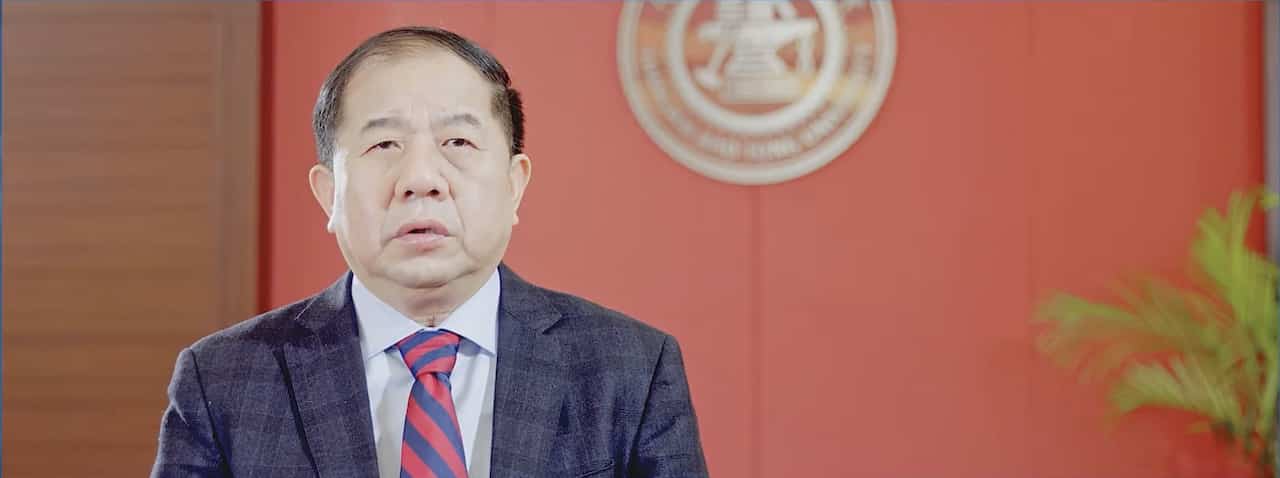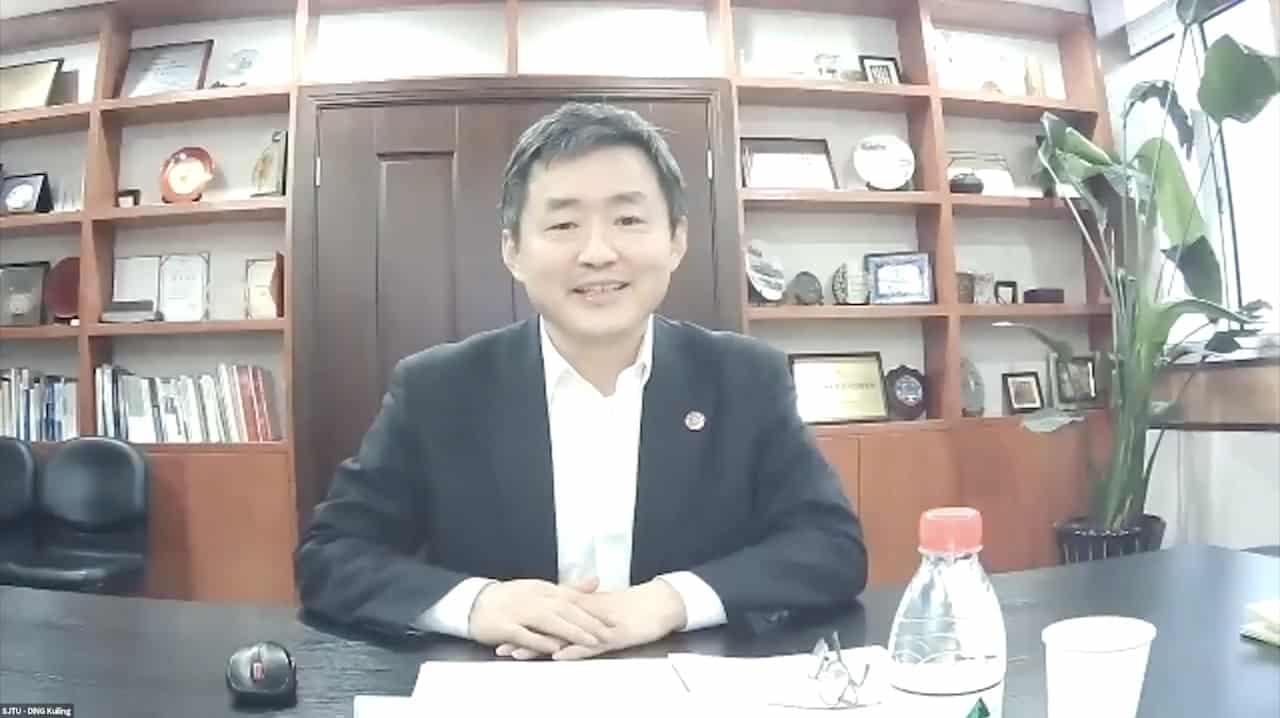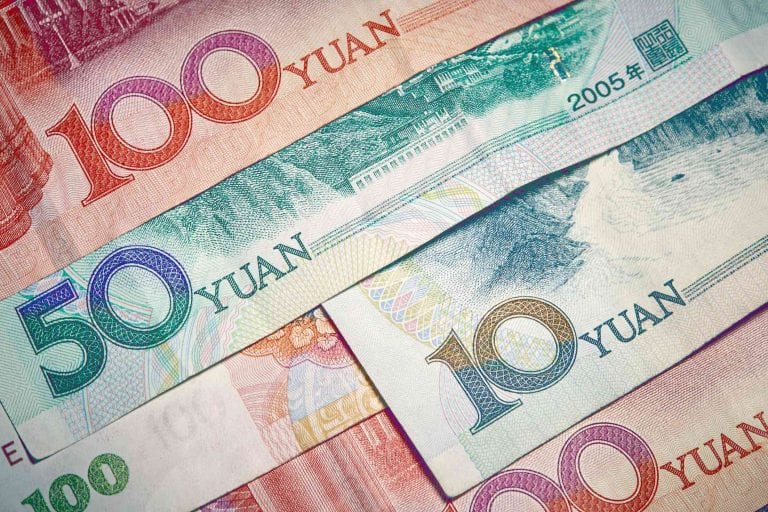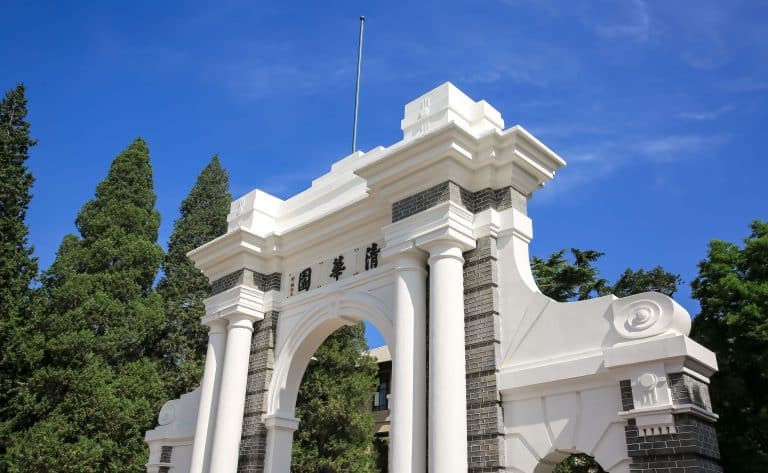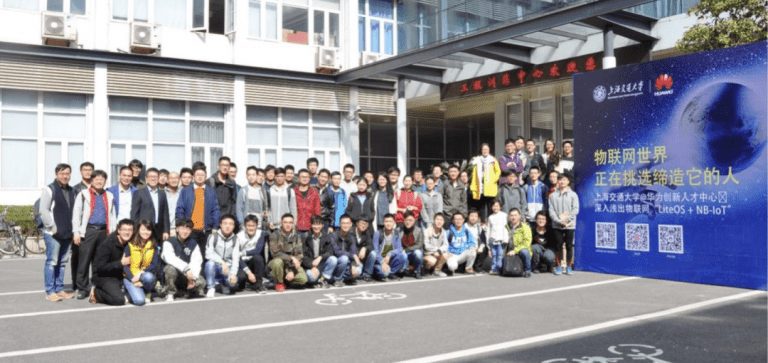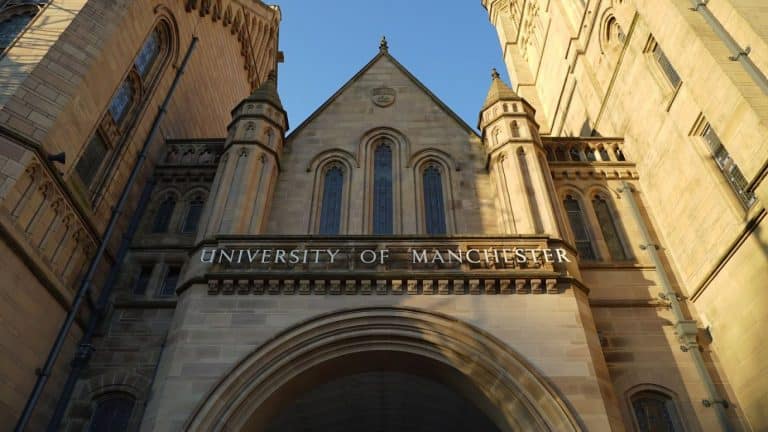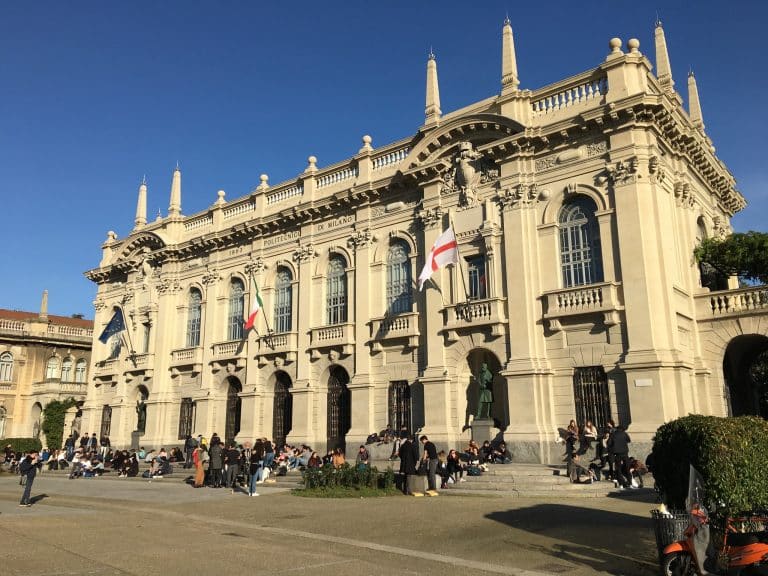Shanghai Jiao Tong University (SJTU), as one of the higher education institutions which enjoy a long history and a world-renowned reputation in China, is a key university directly under the administration of the Ministry of Education (MOE) of the People’s Republic of China and co-constructed by MOE and Shanghai Municipal Government. Through some 120 years’ unremitting efforts, SJTU has become a comprehensive, research-oriented, and internationalized top university in China.
By December 2018, SJTU has had 30 schools/departments, 31 research institutions, 13 affiliated hospitals, 2 affiliated medical research institute, 12 directly affiliated units and 6 directly affiliated enterprises, with 16,129 full-time undergraduates and 30,217 postgraduates (14,439 full-time master degree candidates and 7,882 full-time doctorate degree candidates), 2,982 overseas students (among which 1,698 are postgraduates). The university faculty includes 3,061 full-time teachers (among which 982 are professors), 22 members of Chinese Academy of Sciences, 22 members of Chinese Academy of Engineering, 144 winners of China National Funds for Distinguished Young Scientists, 24 chosen in “Young Talents Program”, 86 selected in “Outstanding Youth Science Foundation”, 36 Chief Scientists of the Major State Basic Research Development Program of China (973 Program), 14 Chief Scientists of the State Key Scientific Research Program, 16 Innovation Research Groups, National Natural Science Foundation of China and 20 Innovation Teams, MOE, 73 winners of National Key R&D Program of China.
Today SJTU has 67 undergraduate programs covering 9 major disciplines: economics, law, literature, science, engineering, agriculture, medicine, management and arts. Since 2000, there are 49 national higher education teaching achievement prizes (36 completed independently). With 19 National Experimental Teaching Demonstration Centers, national demonstration centers of virtual simulation experiment teaching and Shanghai Municipal Experiment Teaching Demonstration Centers, SJTU has 2 teachers of “Ten-thousand Talents Program”, 1 teacher of “National Special Support Program for High-Level Personnel Recruitment”, 8 nationally renowned teachers and 33 Shanghai locally renowned teachers, 8 national-level teaching groups, 15 Shanghai Municipal teaching groups, and owns 48 national-level video-recorded open courses , quality resource-sharing courses, quality online open courses and bilingual-teaching demonstration courses, 343 Shanghai Municipal quality courses, key courses, higher education all-English demonstration courses. SJTU won the 1st national “double demonstration base” and established student innovative center.
Up to now SJTU has 42 first-level disciplines authorized to offer doctorate degree covering 8 fields: economics, law, literature, science, engineering, agriculture, medicine and management; 57 first-level disciplines authorized to offer master degree covering all the 12 discipline fields; 3 disciplines authorized to offer professional doctorate degree; 23 disciplines authorized to offer professional master degree; 35 postdoctoral research station, 1 national key technology infrastructure, 8 national key laboratories, 1 national scientific research institute, 5 national engineering research centers, 2 national engineering laboratories, 1 national research and development center, 3 “2011”collaborative innovation centers, 17 key laboratories of MOE, 1 joint laboratory of international cooperation, MOE, 4 national international joint research centers, 2 demonstration international cooperation joint base, 5 key laboratories of National Health and Family Planning Commission, 1 key laboratory of Ministry of Agriculture, 36 key laboratories of Shanghai Municipal Government, 6 engineering research centers of MOE, 7 engineering technology research centers of Shanghai, 2 Shanghai Municipal functional platforms,1 National Social Science Fund consultation spot,6 innovative research bases of philosophy and Social Sciences of Shanghai Municipal,3 Shanghai Municipal think tanks, 4 decision-making advisory research bases of Shanghai Municipal Government (expert studio),2 Shanghai Municipal soft science bases, 1 MOE colleges and universities research base of soft science, 3 WHO collaborating centers, 1 National Technology Transfer Center, and 1 National University Science Park.
SJTU enjoys an increasingly high scientific research level and technology innovation level. Up to 2018, SJTU led the country for the 9th consecutive year in terms of both the project number and the amount of money issued by National Natural Science Foundation of China. In 2017, the number of SCI included papers in terms of the Article, and Review hit a historical high with the total number of 6,912, among which 3,255 are international outstanding papers and 4,659 are domestic outstanding papers, ranking first in China’s universities. The total number of domestic SCI-cited papers reaches 30,739, ranking the second in China. First author international paper reached 1,545, maintaining the 2nd place in China.
With profound cultural background, an age-old tradition on education, strenuous development history, and great achievements made since the reform and opening up, SJTU has attracted wide attention both inside and outside China. Carrying the mission of preserving cultural heritage, and seeking for the truth, bearing the responsibility of invigorating the Chinese nation and developing for the benefits of mankind, today this centennial university is sailing for the aim of becoming a comprehensive, research-oriented and internationalized world-class university.
Representatives on Board & Executive Committee
Born in December 1957, Prof. Lin Zhongqin is PhD supervisor and Deputy President of Shanghai Jiao Tong University (SJTU).
Prof. Lin received his Bachelor’s Degree in Naval Engineering from SJTU in 1982 and received his Ph.D. in Ship Structural Mechanics from SJTU in 1989. Before assuming as Deputy President, Prof. Lin was Acting Dean of the School of Mechanical Engineering, SJTU. His research interests in recent years include sheet metal forming, manufacturing quality control and process simulation technologies. Prof. Lin has been in charge of more than 40 major projects sponsored by national “973” Program, “863” Program, the National Science Foundation of China as well as Industry projects. He has received three National Science and Technology Progress Awards, the First Prize of Shanghai Science and Technology Advancement Awards, the First Prize of Science and Technology Advancement Awards for China’s Machine-building Industry, Award for Ten Elite Scholars of Science and Technology in Shanghai, the First Prize of GM Foundation Science and Technology Achievement Award, Chiang Technology Achievement Award, Prize for Scientific and Technology Innovation of Ho Leung Ho Lee Foundation and Cheung Kong Scholar Achievement Award, etc.
Professor Lin has also played a leading role in numerous professional organizations. He is a member of the standing committee of Chinese Mechanical Engineering Society, Chairman of the Modern Design Methodology Society of Shanghai, Vice Chairman of Shanghai Automotive Engineering Society, Vice Chairman of Shanghai Mechanical Engineering Society and Vice Chairman of Shanghai Aviation Society. He is also the editorial member of ASME Trans, JSME, International Journal of Sustainable Design, Journal of Plasticity Engineering, Forging & Stamping Technology, Journal of Shanghai Jiao Tong University and Machine Design & Research, etc. He is a member of the International Advisory Committee of Collage of Engineering, University of Michigan and member of State Council Academic Degree Committee for Mechanical Engineering. He is the Director of GM-SJTU Collaborative Research Laboratory in Advanced Manufacturing Processes, Baosteel-SJTU United Laboratory of AutoSheet Application Technology, Shanghai Key Laboratory of Digital Automotive Body Engineering as well as Advanced Manufacturing Process Center for Civil Aircraft of SJTU-COMAC and SJTU-Tangche Collaborative Laboratory of High-Speed Railway Vehicle Body.
Prof. Lin Zhongqin is Accredited Professor of “Cheung Kong Scholar Program” (2002), Recipient of National Science Funds for Outstanding Youth, Leading Scientist of the State Key Project of Fundamental Research, and Head of the Creative Research Group of the National Natural Science Foundation of China.
DING Kuiling, Executive Vice President of Shanghai Jiao Tong University, is a member of the Communist Party of China and was born in March 1966 in Yongcheng, Henan Province. He was appointed Executive Vice President of SJTU and a member of the Standing Committee of the CPC Committee of SJTU in October 2018. Prof. Ding is also a member of the Chinese Academy of Sciences (CAS) and a member of the 13th National Committee of the Chinese People’s Political Consultative Conference.
Ding graduated from the Department of Chemistry, Zhengzhou University in 1985 and received his PhD in chemistry from Nanjing University in 1990. From 1990 to 1998, he was a faculty member at the Department of Chemistry, Zhengzhou University where he was promoted to full professor in 1995. During 1993-1994, he was a postdoctoral fellow at Ryukoku University in Japan. In the period from 1997 to 1998, he was a UNESCO research fellow at Tokyo Institute of Technology in Japan. He moved to Shanghai Institute of Organic Chemistry, CAS, as a research professor and project leader by joining the CAS Hundred-Talent Program in December 1998. He received the National Fund for Distinguished Young Scholars in 2002. He has been chief scientist of the “973” Program of the Ministry of Science and Technology, and key program of National Natural Science Foundation of China (NSFC), co-chair scientist of a CAS Strategic Priority Research Program (Category B) entitled Structure & Function Oriented Creation of New Substances, and the head of CAS Center for Excellence in Molecular Synthesis. He was the deputy director and then director of Shanghai Institute of Organic Chemistry, CAS, as well as Vice President of ShanghaiTech University and dean of the College (Shuyuan). Ding has also been vice president of Shanghai Society of Chemistry and Chemical Industry and the Chinese Chemical Society (CCS), and vice president of the Shanghai Association for Science and Technology.
Ding’s major research area includes asymmetric catalysis and green chemistry based on organometallics. He proposed and successfully practiced the combinatorial approach for chiral catalyst discovery and self-supporting strategy for chiral catalyst immobilization, respectively. He also developed several chiral phosphine ligands including DpenPhos, SpinPhox and SKP, some of which have been commercialized by chemical companies and widely used by academic peers. The new processes he developed for catalytic asymmetric synthesis of chiral drug intermediates and transformation of CO2 to DMF have been implemented by industries. He serves the board or advisory board of more than ten international journals in chemistry including Angew. Chem. Int. Ed. and Acc. Chem. Res.. He is also associate editor of Acta Chimica Sinica and Org. Lett., editor-in-chief of Chinese J. Org. Chem., co-chairman of Chem. Eur. J., and a member of the advisory board of IUPAC International Symposium on Organometallic Chemistry Directed Towards Organic Synthesis (OMCOS) and International Conference on Organometallics and Catalysis (OM&Cat). He received National Natural Science Award (second prize) of China, Shanghai Natural Science Award (first prize), Shanghai Natural Science Peony Award, Shanghai Scientific Elite, Eli Lilly Scientific Excellence Award in Chemistry, CCS Huang Yaozeng Organometallic Chemistry Award, CCS Chiral Chemistry Award, Yoshida Prize of International Organic Chemistry Foundation (IOCF) in Japan, Humboldt Research Award, as well as the honors of Excellent Leader of Research Institution in Shanghai, Outstanding Communist Party Member in Shanghai, National Excellent Scientist, and so on.

